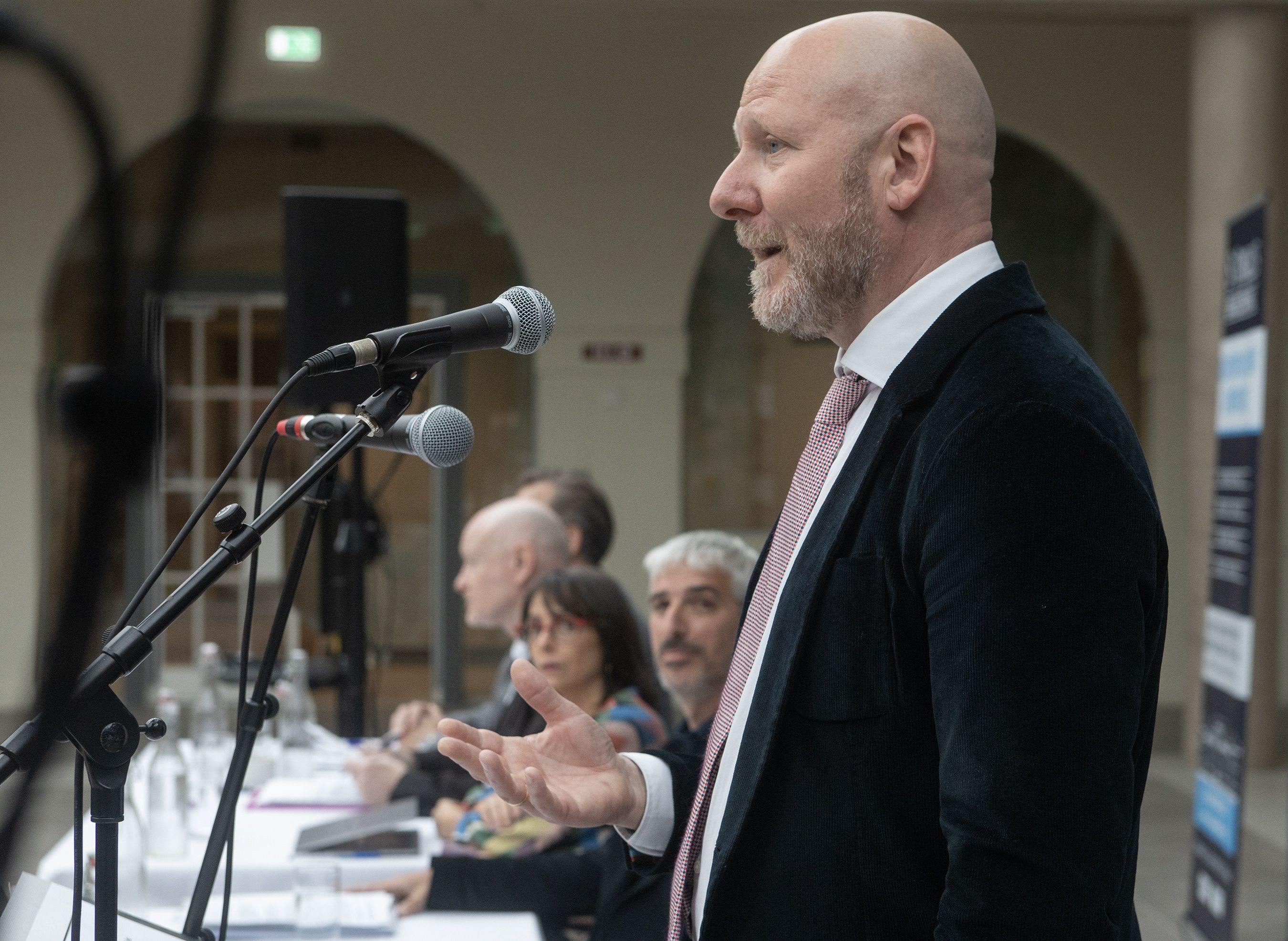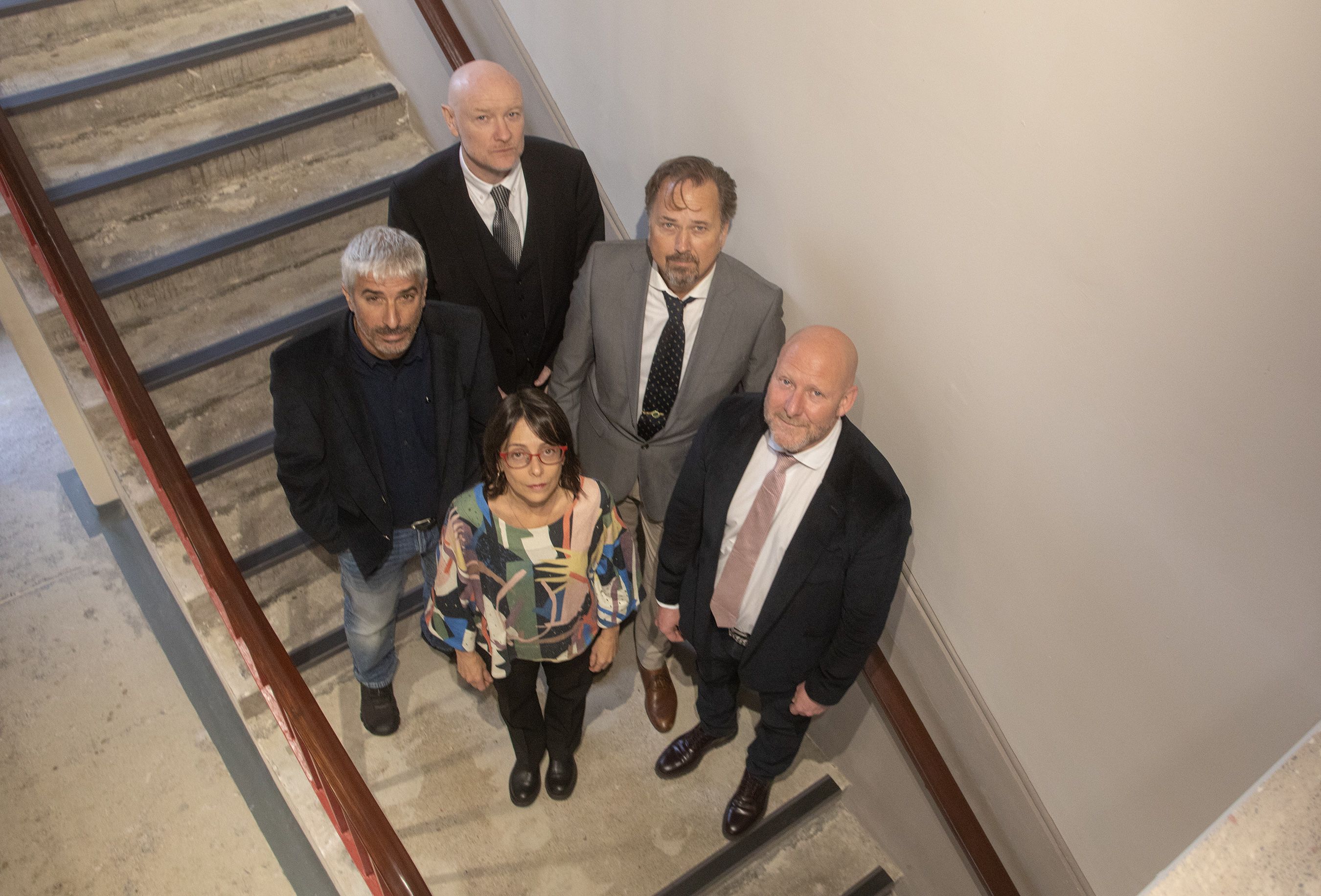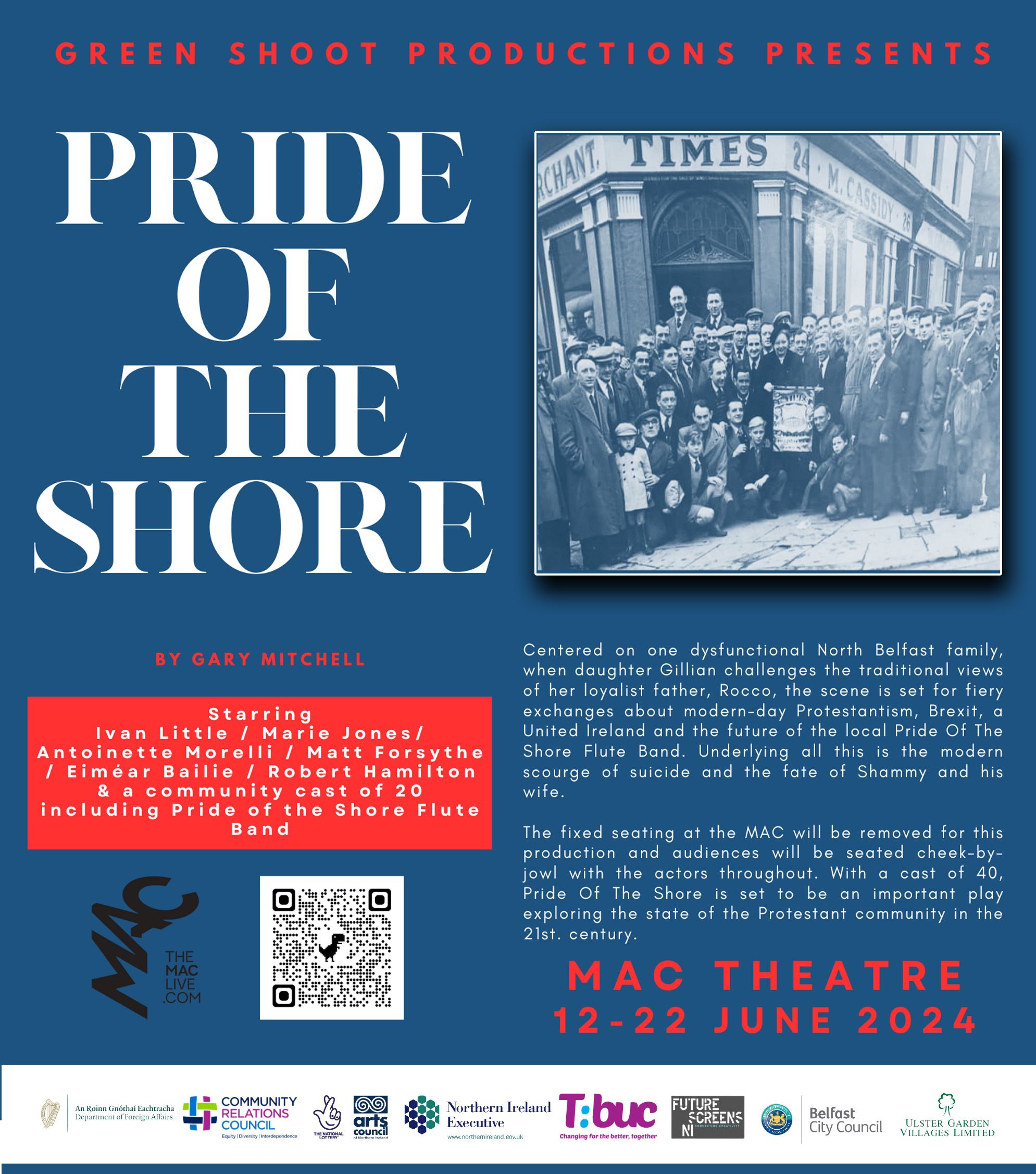A REPORT by a panel of international human rights experts has concluded that the British government operated a “widespread, systematic, and systemic” practice of impunity protecting security forces from sanction during the conflict in the North.
The report: 'Bitter Legacy: State Impunity in the Northern Ireland Conflict', was compiled by an international expert panel convened by the Norwegian Centre for Human Rights, who spent a year assessing British government actions throughout the conflict.

The panel, which included two former senior police officers, investigated allegations that the state not only engaged in collusion but also blocked proper police investigations into conflict related killings to protect security force members and agents implicated in crime.
Panel Convener is Gisle Kvanvig (Norwegian Centre for Human Rights, University of Oslo) speaking at St Comgall's 
The report provides one of the first authoritative studies of state impunity, and comes as the controversial Legacy Act becomes law, effectively banning victims’ families from future legal challenges, and closing down all existing legacy mechanisms.
At the launch on Monday at St Comgalls on Divis Street, the panel called on the British government to scrap the Legacy Act warning it will not only deprive victims’ families of proper legal redress but will severely damage Britain’s worldwide reputation.
The report finds while 30,000 loyalist and republicans were jailed for paramilitary offences during the conflict only a handful of security force members were imprisoned despite involvement in killings and torture.
The panel concluded the huge disparity in prosecutions ensured de facto impunity for security forces involved in killings, torture, and ill-treatment.
Investigative journalist Barry McCaffrey said: "The panel dismisses state claims that only rogue security force personnel were involved in collusion, citing evidence from a number of Ombudsman, Kenova and other official reports since 1998 that have revealed a wider picture of collusion than previously understood.
"The panel found police investigations into murder and serious paramilitary crimes were regularly obstructed by RUC Special Branch, including the withholding of intelligence, crucial evidence being lost and the destruction of documents.
"The panel concludes that this obstruction often amounted to a cover-up of collusion and that the duty to investigate allegations of collusion, via criminal processes and effective inquiries, remained largely unfulfilled during the conflict and that an unknown number of lives would have been saved if correct processes had been followed during the conflict.
"But a reluctance by the State to even investigate, let alone prosecute, its own agents, meant that victims have not achieved the accountability to which they are entitled.
"While the report primarily concentrates on UK Government actions, it also found the Irish Government also failed to carry out effective investigations, which as a result seriously damaged victims’ right to justice.
"The panel is calling for the Legacy Act to be repealed, victims’ families allowed renewed access to legacy inquests and civil proceedings and a return to Stormont House Agreement urging the British and Irish governments to implement an SHA+ model covering torture and investigations in the Republic as well as to establish an independent international commission."








